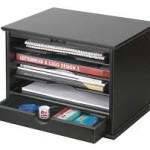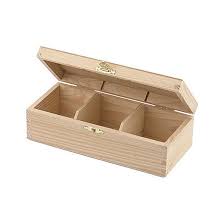…by Matt Robert…
There is a well-known unconscious defense mechanism in psychology—compartmentalization. All humans compartmentalize. It’s one of the ways we make sense of the world, putting things in little boxes, so we can understand and move through the world more effectively.
But compartmentalization can cause more harm than good. Especially when it comes to addiction. We learn that our addictive behavior provides us something we are missing, some relief from anxiety, some focus free of the stressful distractions of daily life. Then we notice we want to keep using it, using it in a way that may not be acceptable to us  or to our community. We want the resulting ambivalence and cognitive dissonance to go away. So we put the addiction in a compartment, over to the side in our psyche. A little box of respite and relief when we need it, and no one else needs to know about it or disapprove.
or to our community. We want the resulting ambivalence and cognitive dissonance to go away. So we put the addiction in a compartment, over to the side in our psyche. A little box of respite and relief when we need it, and no one else needs to know about it or disapprove.
The problem is that, in addiction, the compartment starts to leak. The tendrils of our secret start to surround us to the point where everyone else can see that it’s a problem–before we do. We think it’s still back in its box, there for when we need it. But now it’s taking up more and more space in our mind and in our life. And the leaky compartment is getting more and more difficult to manage.
Addictions aren’t the only thing we compartmentalize to our detriment. Sometimes we also compartmentalize our recovery. Our recovery is boxed away in the meeting we go to on Tuesdays, or the medicine we take every morning, or the program we went to for 3 months.  Our recovery is under control: it’s in a box. But unlike addiction, our recovery compartment doesn’t usually leak. It just sits there. It doesn’t become the central part of our daily life that the addiction was. In fact, with recovery, compartmentalization poses the opposite threat: the danger that it may dry up and disappear if left in its box.
Our recovery is under control: it’s in a box. But unlike addiction, our recovery compartment doesn’t usually leak. It just sits there. It doesn’t become the central part of our daily life that the addiction was. In fact, with recovery, compartmentalization poses the opposite threat: the danger that it may dry up and disappear if left in its box.
Rather than compartmentalizing our recovery, we need to integrate it with the rest of our life if we want our addiction to shift. When we quit doing whatever we did, it  leaves a very big hole that something else needs to fill. If nothing fills that hole, whatever it is we quit is going to come back. A compartmentalized approach to recovery is not enough to allow the strands of workable change, the tendrils of real transformation, to be established and maintained.
leaves a very big hole that something else needs to fill. If nothing fills that hole, whatever it is we quit is going to come back. A compartmentalized approach to recovery is not enough to allow the strands of workable change, the tendrils of real transformation, to be established and maintained.
It doesn’t matter what you do, whether it’s HAT, MAT or Hazelden. It matters how you do it. It matters that you carry your recovery around with you like a precious jewel wherever you go, not leave it in a safety deposit box you visit on weekends. People say that spirituality shouldn’t be something you talk about in church every Sunday, then lose sight of the minute someone cuts you off pulling out of the parking lot. Neither should our recovery be. Recovery is about purposeful re-engagement and reintegration into this absurd enterprise we call life.
More effective treatment approaches actually fight the compartmentalization of recovery. They are integrative, and they fold treatment modalities that are effective for individuals into their daily life, their personal ecosystem. The community of caregivers, friends, family and fellow addicts are all connected and  can troubleshoot and collaborate to solve problems as they arise. There is the feeling that we are all in this together, all on the same team. When we feel this way, alienation tends to dissolve, and the need to compartmentalize, to control, lightens up. It’s safe for our recovery to emerge from its box, like a butterfly from its cocoon.
can troubleshoot and collaborate to solve problems as they arise. There is the feeling that we are all in this together, all on the same team. When we feel this way, alienation tends to dissolve, and the need to compartmentalize, to control, lightens up. It’s safe for our recovery to emerge from its box, like a butterfly from its cocoon.
How do you compartmentalize your addiction, and why? How do you compartmentalize your recovery, and why? What would help you take your recovery out of its box and integrate it into all parts of your life? If we can find the answers to these questions, we can learn new ways of being that will take us beyond our addictions. As we learn to dissolve these boxes, we can build new lives. As I once heard an old timer say, “This isn’t a fucking dress rehearsal. This is it.” When we have everything to lose, we have to be open to anything that makes a difference. And compartmentalizing our recovery, putting it in a box, is unlikely to take us where we need to go.

Leave a Reply to Mark Cancel reply